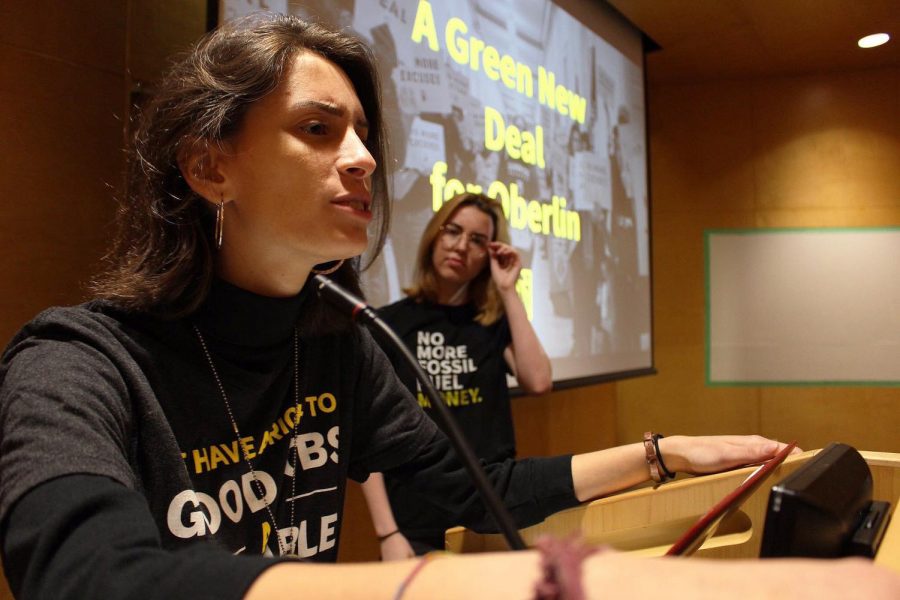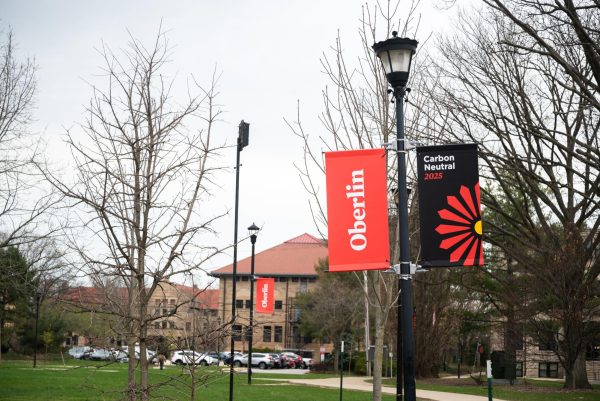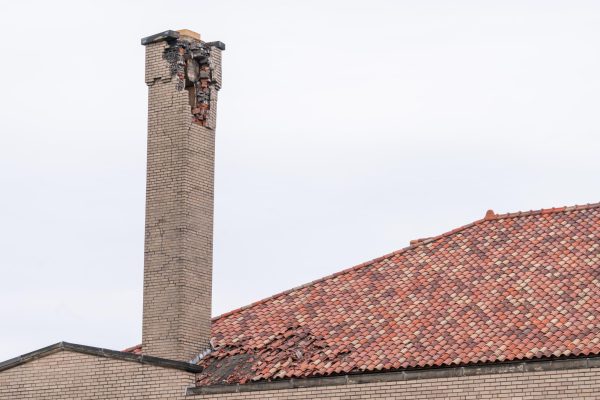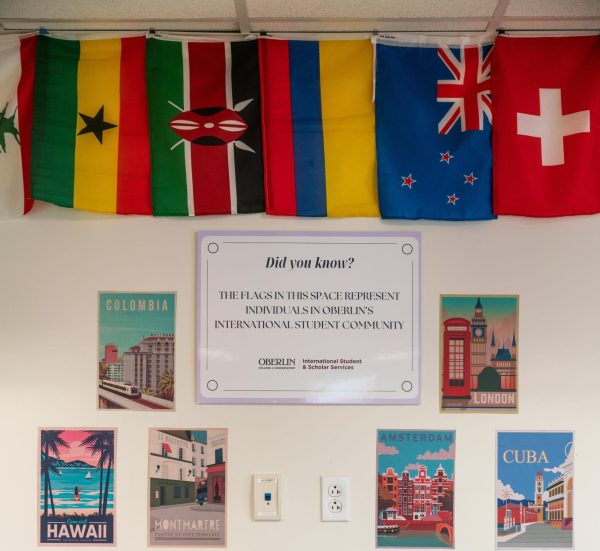Sunrise Strikes for Brighter Future
Sunrise Oberlin organizers, including College second-years Faith Ward and Grace Smith, present on campus climate activism.
Environmental activists will gather in Tappan Square at 10 a.m. on Friday, Sept. 20 in solidarity with Global Climate Strike, an international movement focusing on climate justice. Oberlin’s protest is being organized by Sunrise Oberlin. However, the international Global Climate Strike project began with high school students led by 16-year-old Swedish climate activist Greta Thunberg going “on strike” from school on Fridays to express their discontent with their respective international governments’ lack of action regarding climate change.
Oberlin Sunrise hub coordinator and College second-year Dan Kennedy is hopeful that the strike will leave a lasting impression among lawmakers.
“[The strike] will show the politicians and fossil fuel billionaires that we are not willing to tolerate business as usual any longer, and that millions of people are willing to walk out of the workplace or the classroom to demand action on climate change,” Kennedy said.
The strike, in line with Sunrise’s general mission, demands that leaders take action on climate change. More specifically to American leaders, the strike will call for the implementation of the Green New Deal, a bill that seeks — in part — to reduce the impacts of climate change.
Professor and Director of Environmental Studies Karl Offen expressed excitement about the Green New Deal’s several strengths.
“[It] has people talking, it contributes to more people recognizing the extreme seriousness of climate change, and it has played a part along with hundreds of other large and small efforts to motivate millions of youth across the world to demand action from their irresponsible elders,” Offen wrote in an email to the Review.
The Green New Deal, also known as House Resolution 109, recognizes five responsibilities of the federal government in response to the worsening climate crisis: to achieve net-zero greenhouse gas emissions; to ensure economic prosperity of the U.S. through job creation; to invest in sustainable infrastructure and industry; to secure crucial resources for all U.S. residents for generations to come; and to promote racial and class justice in order to repair systemic oppression.
A large reason why Kennedy joined Oberlin’s chapter of Sunrise was because of the emphasis it carries upon the passage of the Green New Deal. In a column titled “We Can — And Must — Implement Green New Deal,” Kennedy explained this reasoning.
“If the Green New Deal is politically impossible, our job is to organize, mobilize, and build the people power necessary to make it possible,” Kennedy wrote (The Oberlin Review, March 1, 2019).
Around the world, many members of Global Climate Strike and its sister organization FridaysForFuture are motivated by similar sentiments. The movement poses the following questions: Why study for a future which may not be there? Why expend effort to become educated, when our governments are not listening to the educated?
These strikes have been primarily geared toward youth. In fact, the school strike nature of the protests has precluded participation by adults, at least until now.
As the U.N. Climate Summit on Sept. 23 draws near, the strikes have taken on new momentum, inviting employees to take part alongside the students in an international, multi-generational strike on Sept. 20.
The walk-out has already gained pledges of participation from many companies — perhaps most notably over 900 Amazon employees have signed an internal petition to walk-out. Some corporations, such as Ben & Jerry’s, Lush Cosmetics, and Patagonia, plan to close down locations for the day as acts of civil disobedience in solidarity with the strike.
Here at Oberlin, environmental activism is not limited to any one particular type of Oberlin student. This is something that Offen has observed, explaining that not all members of Sunrise — and other student organizations like it — are environmental studies majors. Instead, true to Oberlin’s liberal arts spirit, they come from a variety of majors.
This spirit holds true for the protest, as well. According to Oberlin Sunrise social media coordinator and College second-year Rachel Serna-Brown, Oberlin High School students will be invited to join the strike. The event will also include an educational and community-based component.
“[There will be] a walkout at 9:40 [a.m.] so we’re all going to be in Tappan then, and have the strike be at 10:00,” Serna-Brown said. “[Afterward,] we’re going to have speakers and teach-ins about legislation and such.”
Kennedy hopes that the protest will have tangible impacts on global policy.
“Our politicians have known about climate change for decades now, and they have chosen to put all of our futures in danger by completely failing to act,” Kennedy said. “Business as usual will kill us, and is already doing enormous damage to frontline communities, like we saw in the Bahamas last week. This strike will show the politicians and fossil fuel billionaires that we are not willing to tolerate business as usual any longer, and that millions of people are willing to walk out of the workplace or the classroom to demand action on climate change.”







